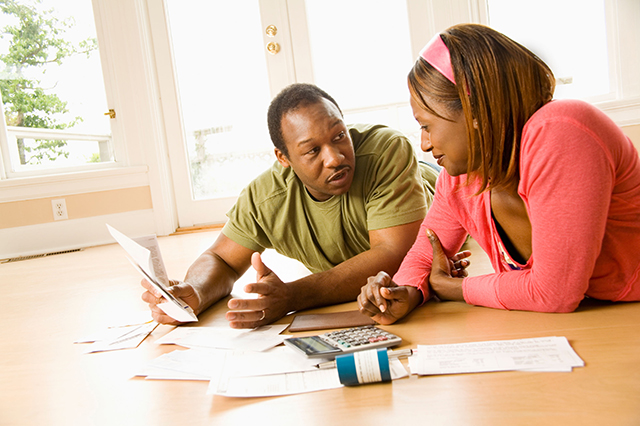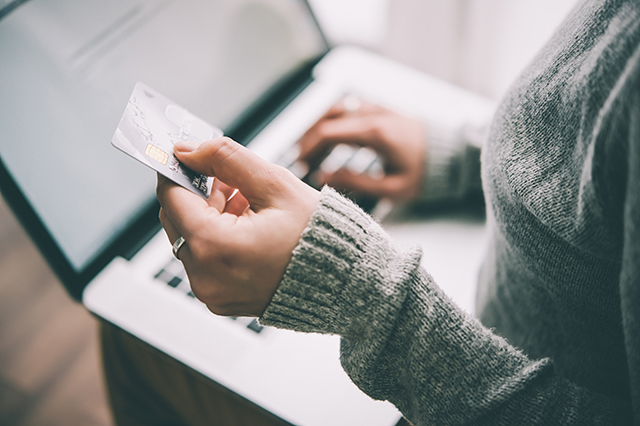If you’re like many Americans, you probably have a love-hate relationship with your credit cards. You love the convenience and instant gratification that credit cards can provide, but you also realize that convenience comes at a price. With a powerful piece of plastic in your pocket, it’s all too easy to spend beyond your means. If you don’t know how to use a credit card wisely, your credit card debt can easily snowball out of control, causing financial stress and instability.
Maintaining a healthy relationship with your credit cards requires planning and perseverance. Here’s how to use a credit card wisely.
Create a budget and stick to it
Do you know where your money is going each month? Creating a budget will help you figure out how much money you have to spend, not just on necessities, but also on those items that you may otherwise be impulsive about. A budget will also help you decide if you should take on new debt, and what you can afford for monthly credit card and loan payments.
Pay your bills on time
There are all kinds of reasons to pay your bills on time. For one thing, late payments will often result in late fees, adding to your overall debt. Skipping a payment also makes it much more likely that your debt will snowball out of control. If you can’t afford this month’s payments, how will you be able to afford double next month? Your credit score is partially based on how timely you are with bill payments. Anything more than 30 days late will have a negative effect on your score, which will damage your credibility with lenders.

If you choose to carry credit card debt, do it responsibly
The best way to avoid steep interest payments is to pay off your credit card balance at the end of each billing cycle, but if you do have to carry a balance on your credit card, follow these best practices:
- Pay your bill on time.
- Pay more than the minimum balance each month.
- Ideally, try keep your balance below 25% of your credit limit. If your balance creeps up close to your credit limit, it can negatively affect your credit score.
Keep tabs on your credit report
Checking your credit report regularly is an important way to monitor your spending habits and financial health. It will also help you catch mistakes that could cost you money. You are entitled to one free credit report each year from each of the three credit reporting agencies: Equifax, TransUnion, and Experian. You can request your free credit report at AnnualCreditReport.com, which is a government-sponsored website.
Errors or discrepancies in your credit report may be signs of fraudulent activity. Here’s what to look for:
- Accounts that you didn’t open.
- Loans that you know are paid off, but show up as open accounts.
- Incorrect personal information.
- Discrepancies in account numbers or loan amounts.
Read the terms and agreements for your credit card
Do you know the terms of your credit card? This lengthy document is important. It will tell you if your credit card carries an annual fee, what your annual interest rate is, if there’s a fee for balance transfers or cash advances, and what you can expect to pay if you miss a payment.
Reading through the terms and agreements for each card carefully will help you avoid unpleasant surprises in the future. For example, could your APR increase without notice? Will you be charged for overseas transactions? If there is anything in the agreement that you don’t understand, definitely reach out to the card’s customer service representative before signing on.
It’s best to go over this document before you apply for a new credit card, so that you can match the terms to your lifestyle and spending habits.
Maximize your rewards
Many credit cards come with incentives to encourage you to spend more with your card. These could be in the form of points, airline miles, or even cash back. Choose a rewards card that matches your lifestyle and spending habits, and you could actually save money. Here are a few tips for using your rewards card strategically.
- Look for sign-on bonuses. Many rewards cards offer bonus points or miles if you spend a certain amount of money within the first few months of opening your account.
- Don’t use too many rewards cards. Using lots of different rewards cards will just dilute your earning power. Instead, choose one or two cards that fit your lifestyle.
- Don’t let your points expire. Many points come with an expiration date. Be sure to cash them in or use them up before they disappear.
Using credit cards is a great way to boost your credit score and gain access to rewards, but they can also be dangerous if you don’t use them responsibly.
Do you have any tips for how to use a credit card wisely? Share your tips with us in the comment section.













